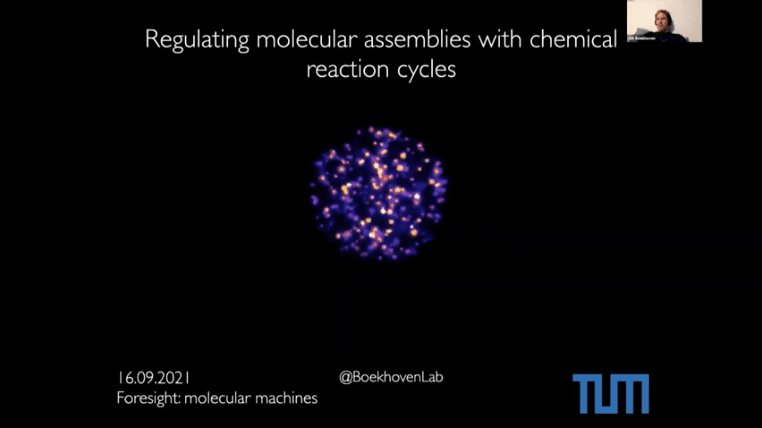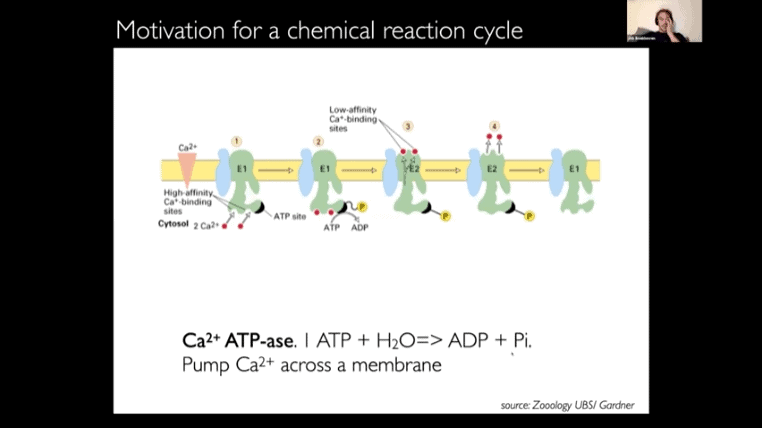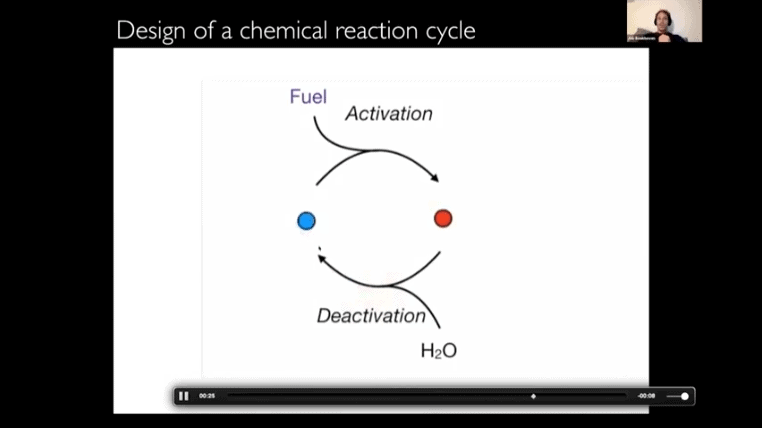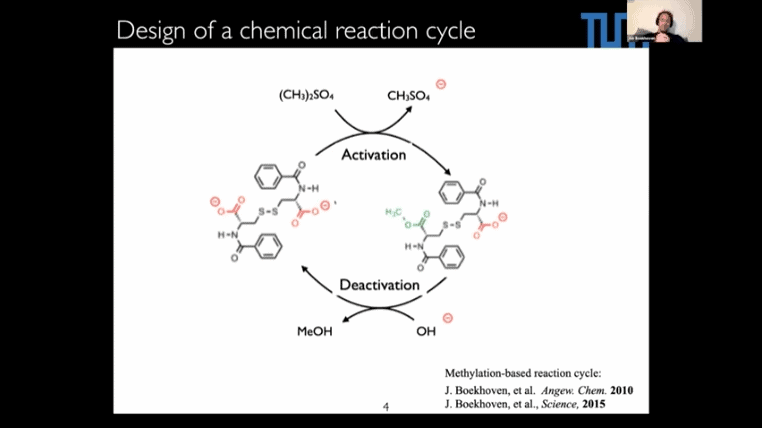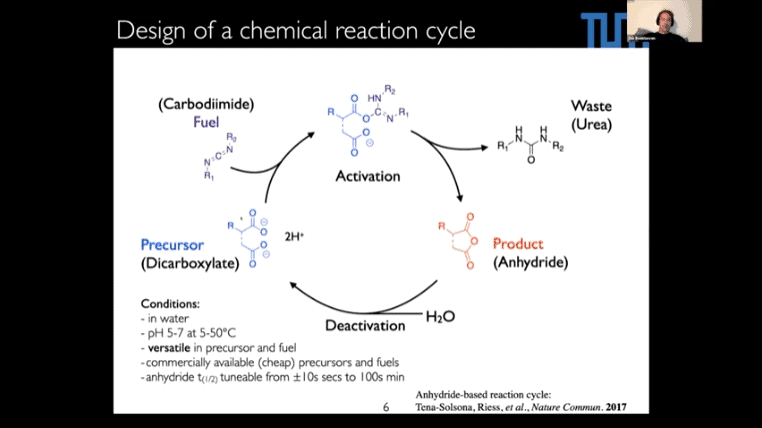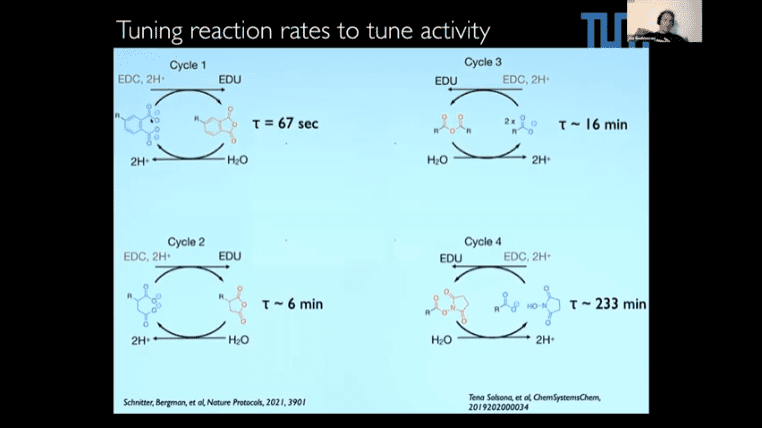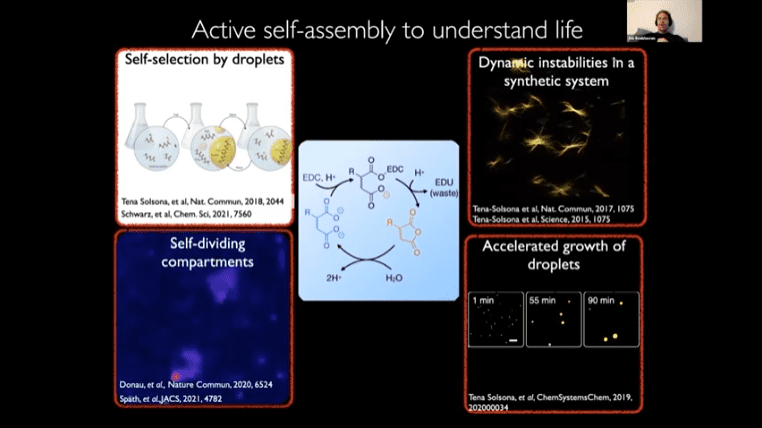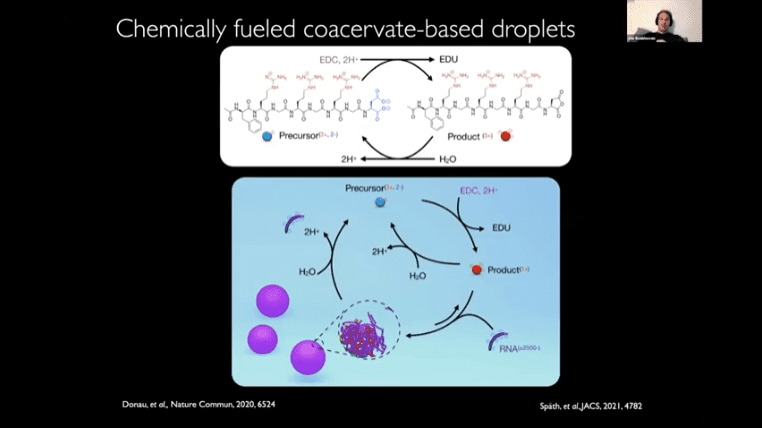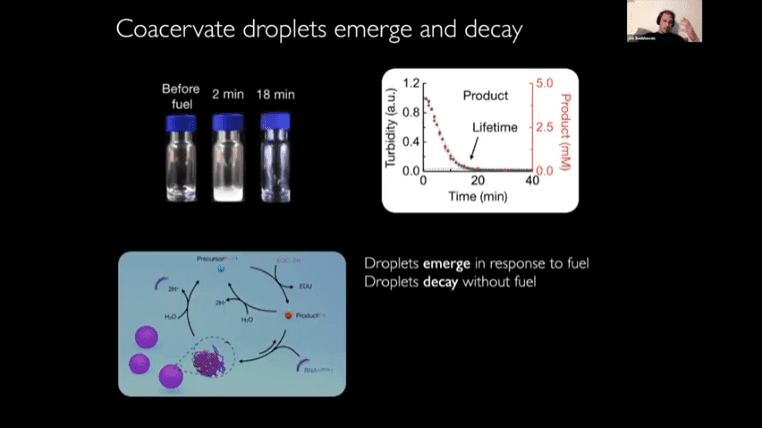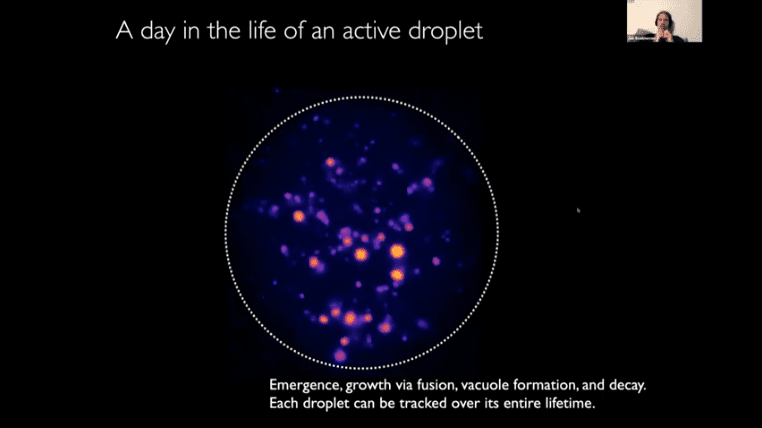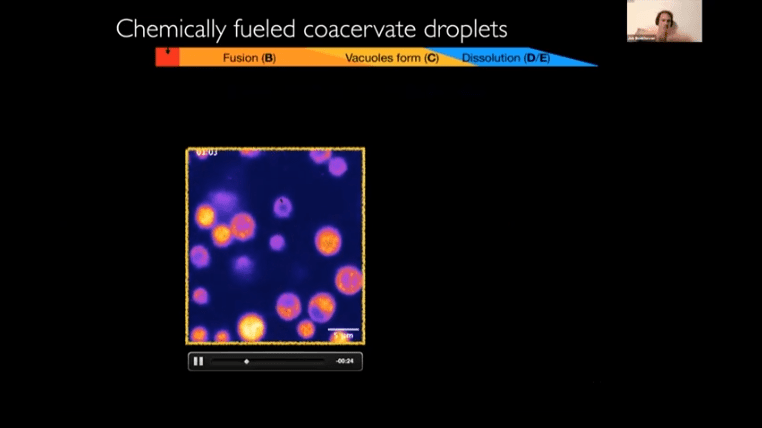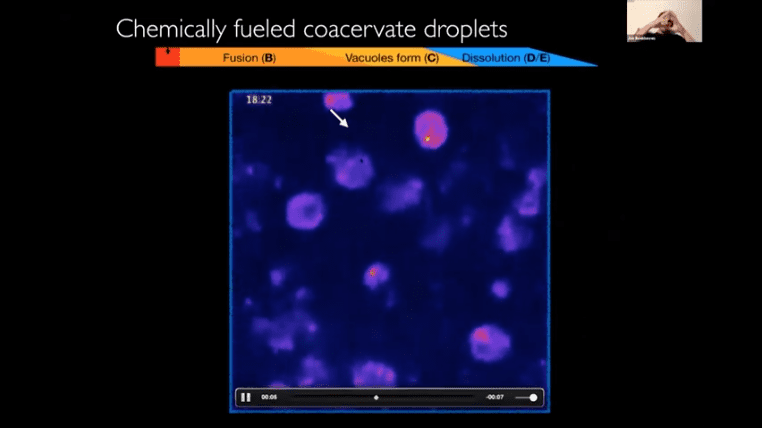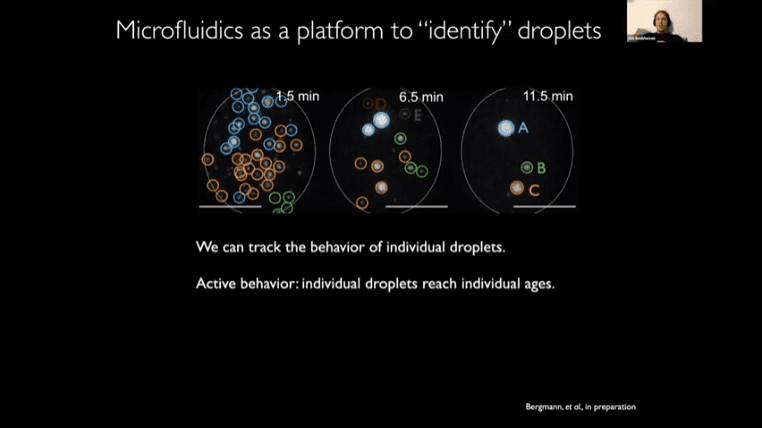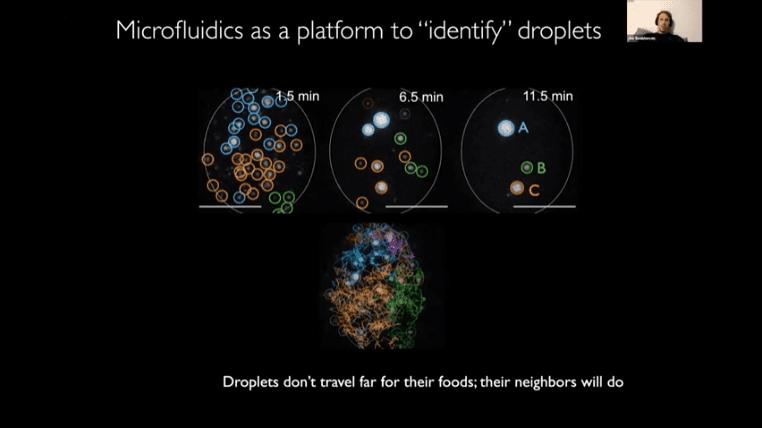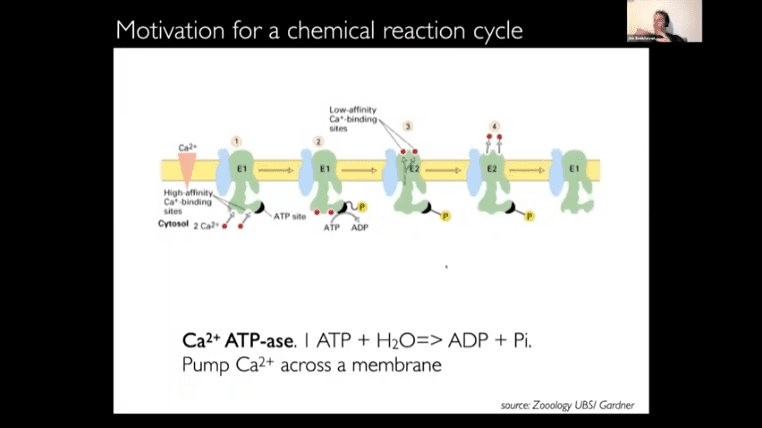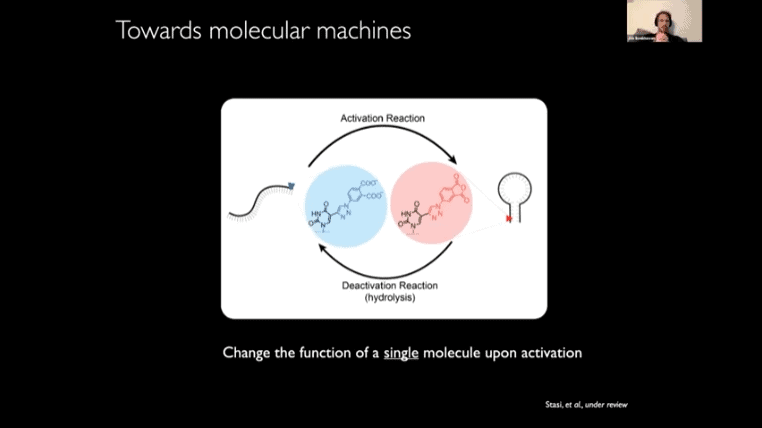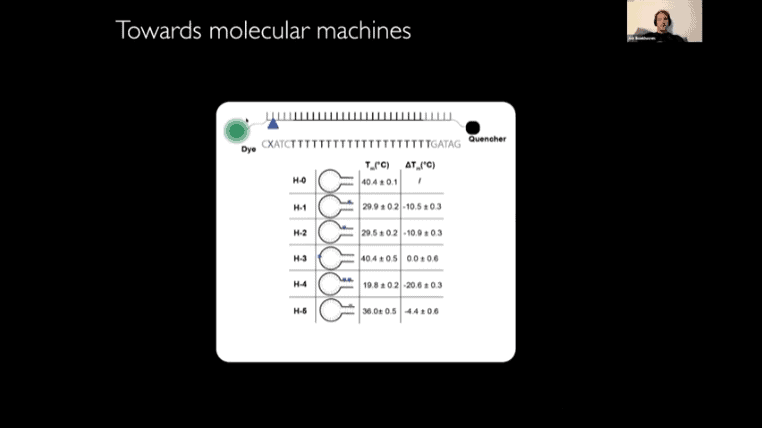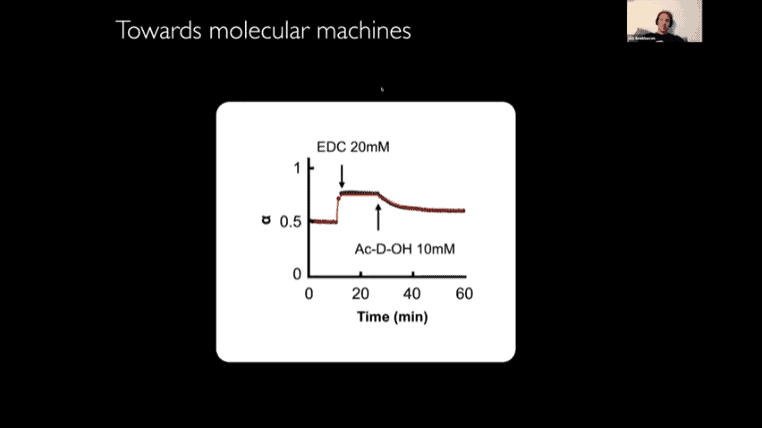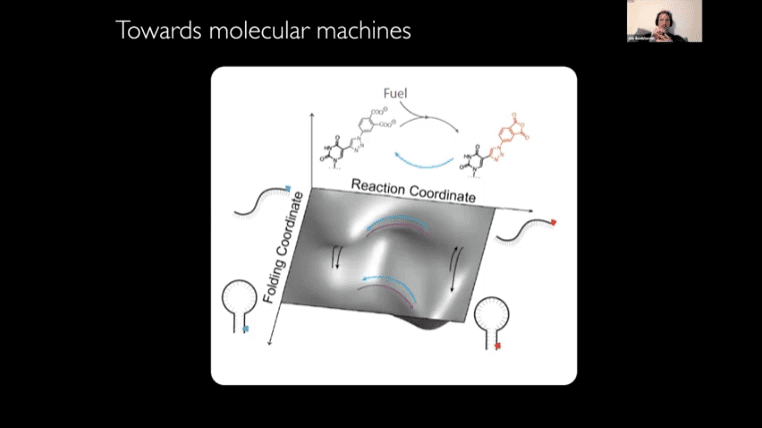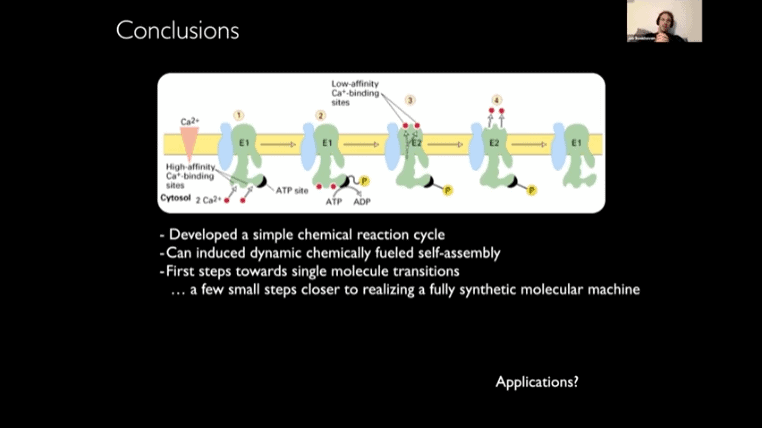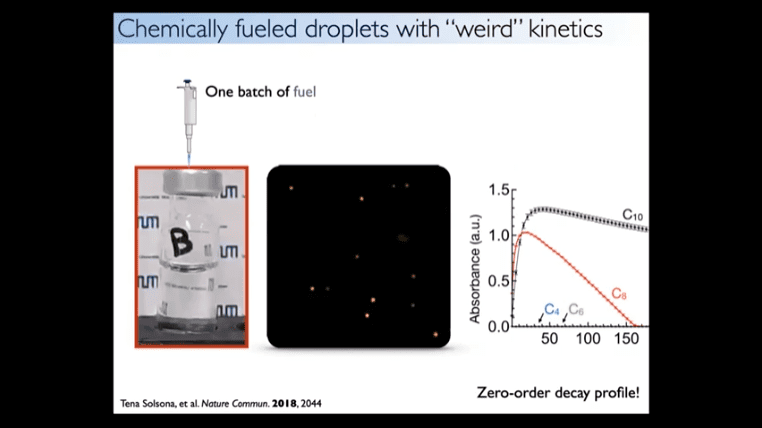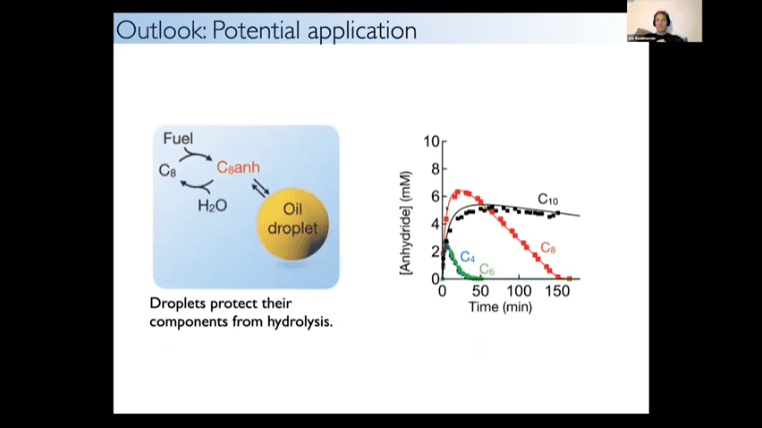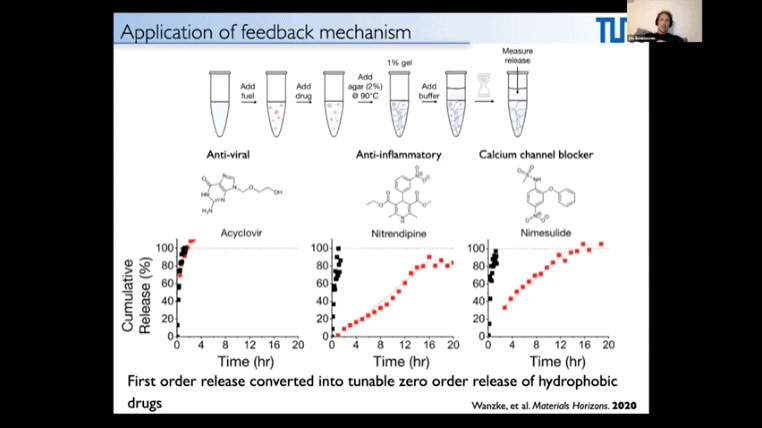Presenters

Job Boekhoven, Tech. Universität München
Job Boekhoven holds an undergraduate degree in chemistry from the University of Groningen, where he majored in organic chemistry, and a PhD degree (2012) in chemistry from Delft University of Technology, both in the Netherlands. Before his appointment at TUM, he was a Rubicon postdoctoral fellow at Northwestern University in Chicago. In January 2016 Boekhoven was appointed …
Presentation: Regulating Molecular Assemblies with Chemical Reactions
- Regulating Molecular Assemblies with chemical reaction cycles
A natural reaction cycle is the hydrolysis of ATP by ATPase to pump calcium across a membrane against equilibrium. This is inspiration for the construction of molecular machines that can be regulated by chemical reaction cycles.
How to build a simple system that can perform a function over and over thousands of times?
A dimethylsulfate reaction could be a first step
A more versatile reaction cycle could be a dicarboxylate two step process for condensation. The reaction speed can also be tuned.
If the previous reaction was the engine, this is the gearbox. Altering the cycles can change the reaction cycle based on the constituents involved
Oil droplets are used to manage the chemical reaction by creating chemical compartments
Oil emulsion will only occur when the active state is present. This type of mechanism can act as a model for protocells
- Emulsion emerges in response to fuel and decays without fuel. It makes it easy to measure the reaction state
Oil shells emerge from a chemical scenario where the inside and outside fuel conditions are different
Microfluidics can be used to identify various types of droplets and the potential chemical differences between them
If you want to achieve levels of control akin to biology, we need to change the function of a single molecule upon activation.
Hairpin DNA is used with molecular beacons in order to measure how many hairpins are folded. Chemical reactions can be measured over time and equilibrium states can be mapped out in a landscape.
A simple chemical reaction was developed which induced dynamic chemically fueled self-assembly. This is a small step toward a fully synthetic molecular machine.
Due to the zero-order kinetics of oil droplet degradation, this type of system could be used for drug delivery. Drugs could be released slowly from an oil droplet and the release rate could be tuned by the chemical reaction and type of oil used.
